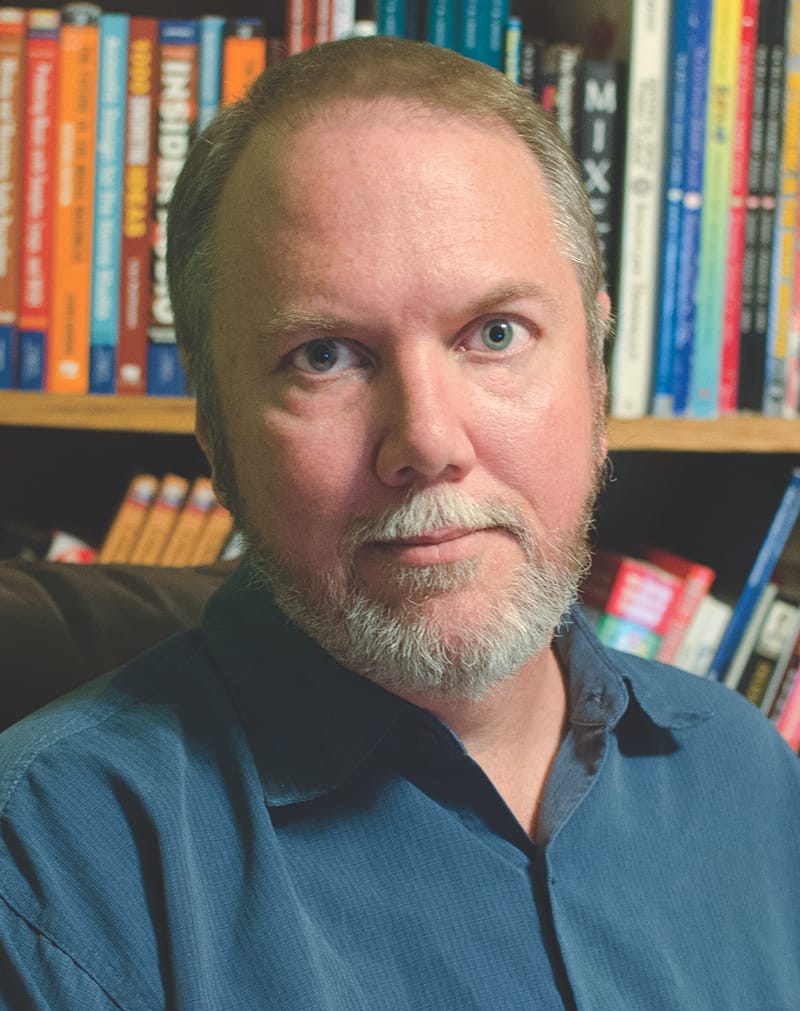 Bridging the old and new school of music education
Bridging the old and new school of music education
A recent music education journal article blasted teachers who attempt to reach the other 80% of students by using non-traditional, technology-centric music education programs, students the writer must feel will never be part of traditional band and orchestra programs.
He made the wildly absurd accusation that those teachers who do so vilify ensembles and traditional music programs that capture the other 20% of music program students, whom the writer feels are “the most motivated and interested students.” I was surprised at the persecution-complex tone of the article and the attitude expressed, with its overall bah-humbug take on 21st century music education methods that allow all students to learn music. It complained of needless divisiveness, while being needlessly divisive. The educators I’ve worked with who integrate technology into their programs also tend to teach traditional music programs as well, and I’ve never heard them toss around the derogatory terms this writer complained of, let alone earning those teachers the drolly-put status of “the Ann Coulters of music education.”
Sure, the “other 80%” of students are not all likely to be the next generation of string, woodwind, brass, or other ensemble instrument performers, nor are they all the most likely to sit first chair in the marching band, but some of them will. Some small percentage that will be welcomed into non-traditional music programs by forward-thinking teachers who capture their interest in all things music will build their confidence with innovative devices and software. Some students will have ignited in themselves a desire to play a traditional instrument, to understand the underlying elements of music upon which all of today’s wonderful new inventions are based — and lead them into traditional music programs. Perhaps they will even decide they should pursue being part of that article writer’s ensemble. Wouldn’t that be ironic?
From the simplest of technologies that allow us to precisely tune our instruments quickly, to advanced orchestration written in notation software allowing compositions to be played back using MIDI with every possible instrument the composer envisioned, to being able to print that score and realize the dream of hearing an ensemble perform the piece, technology helps us make music and music education better in the 21st century.
Full disclosure: I am biased. Having spent the past two decades publishing educational books and videos that demystify the art and science of sound for music and audio production, I’ve come to greatly appreciate everything these tools can do for today’s music educators, musicians, and the next generation of musicians to come. I am the executive director of TI:ME, the Technology Institute for Music Educators, because what today’s cutting edge teachers do to teach music to the 100% of students attending school music programs today simply inspires me beyond words. I am a lifelong musician. I play, write, record, and share my work with others. Nothing has advanced those abilities greater in me than the technology that has so rapidly evolved since home computers came into being and MIDI/digital audio recording were invented.
The writer of the article pretends he quotes Socrates, “The secret of change is to focus not on fighting the old, but on building the new.” He actually quoted Nick Nolte playing a character named Socrates, from a movie based on the book Way of the Peaceful Warrior, by gymnast Dan Millman. Perhaps the writer of that article should understand that fighting the new is no way to build upon the old, either.
This month’s SBO features a cover story that I’m really excited about presenting to our readers. Tyler S. Grant is a nineteen-year-old composer and conductor. He was nurtured by great teachers throughout his life that encouraged his talents, his love of music, his natural curiosity, and taught him through traditional music programs. At the same time, a teacher pointed him to a free composition software program that allowed him to take his youthful, innate familiarity with today’s technology and combine the two forces. Technology is an integral part of his work.
Though it’s easy to wax nostalgic for a historic time when music was imagined to be perhaps more pure, I believe there has never been a more exciting time to be alive and be a musician, or a music educator. There is no reason for divisiveness amongst educators across old and new schools of thought; the common goal is to instill a love of creating music to another generation of students. Technology isn’t going away. We must all embrace it as a means for attracting more students to traditional music programs.
Mike Lawson









